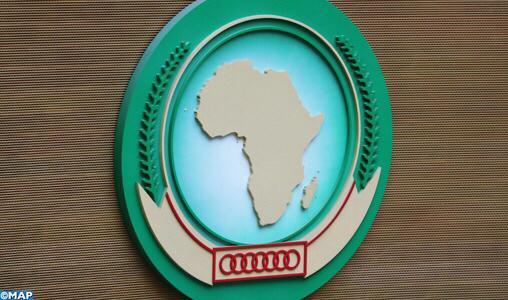Food security has been an enduring challenge for many African countries due to a variety of factors such as climate change, limited access to modern agricultural technologies, inadequate infrastructure, and political instability. Recognizing the urgency of addressing this issue, the African Union (AU) has established food security objectives to promote sustainable, resilient, and inclusive agricultural systems. This essay aims to assess the progress made by the AU in achieving its food security objectives, examining the interventions implemented, successes achieved, and areas where further improvement is required.
Insights:
1. AU's Policy and Strategic Framework: The AU has developed several policies and frameworks to tackle food security, notably the Comprehensive Africa Agriculture Development Programme (CAADP) and the Malabo Declaration. CAADP aims to improve agricultural productivity and promote food security while the Malabo Declaration sets targets to be achieved by 2025, including doubling productivity, halving post-harvest losses, and tripling intra-African trade in agricultural goods.
2. Investment in Agriculture: One of the critical aspects of ensuring food security is investment in agriculture. The AU recognized this and launched initiatives like the African Agriculture Fund, supported by the African Development Bank, to finance agricultural projects in member states. Furthermore, the creation of the Africa Food Security Initiative (AFSI) has attracted significant investments from both internal and external sources, which have contributed to boosting agricultural productivity.
3. Enhanced Collaboration and Regional Integration: Recognizing that food security issues go beyond national borders, the AU has placed emphasis on strengthening collaboration and regional integration. Efforts such as the Continental Free Trade Area (AfCFTA) aim to remove trade barriers and promote agricultural trade among member countries. Regional economic communities, such as the East African Community and the Economic Community of West African States, have also taken steps to harmonize policies and improve cross-border agricultural trade.
4. Resilience to Climate Change: Climate change poses a significant threat to food security in Africa. The AU has undertaken various initiatives to build resilience to climate change, including the promotion of sustainable agricultural practices, agroforestry, and the development of climate-smart agriculture. Additionally, the establishment of the African Risk Capacity has strengthened African countries' ability to respond to climate-related disasters.
5. Encouraging Smallholder Farmers: Smallholder farmers play a crucial role in food production, and empowering them is vital for achieving food security. The AU has placed special emphasis on supporting smallholder farmers through initiatives like the Pan African Farmers' Organization (PAFO) and the Africa Solidarity Trust Fund, which provide funding, training, and capacity building to small-scale producers. These initiatives have helped improve access to markets, finance, and technology for smallholder farmers, leading to increased productivity and livelihoods.
Successes and Key Achievements: - Increased agricultural productivity in several African countries, particularly in regions where interventions have been implemented effectively.
- Strong commitment from member states, as shown through increased public and private investments in agriculture.
- Improved coordination and collaboration among African countries, leading to reduced trade barriers and increased intra-African agricultural trade.
- Adoption of innovative and sustainable practices, such as conservation agriculture, agroforestry, and the use of climate-smart technologies.
- The AU has successfully mobilized international support through partnerships with organizations such as the Food and Agriculture Organization (FAO), the World Bank, and the International Fund for Agricultural Development (IFAD).
Challenges and Areas for Improvement: - Slow implementation of policies and frameworks at the national level due to limited institutional capacity and political will.
- Insufficient investment in agriculture, particularly in the context of climate change adaptation and mitigation.
- Inadequate attention to the needs and constraints faced by women and marginalized groups within the agricultural sector.
- Insufficient access to finance and markets for smallholder farmers, limiting their ability to participate in value chains and earn sustainable incomes.
- Limited awareness and understanding of the importance of food security among the general population, which impedes efforts to mobilize support and resources.
Conclusion: While significant progress has been made in addressing food security in Africa, the AU's journey towards achieving its objectives is still ongoing. The AU's policies, strategic frameworks, and collaboration initiatives have undoubtedly contributed to improved agricultural productivity, resilience to climate change, and increased trade in agricultural goods. However, challenges such as poor implementation, inadequate investment, and limited support for smallholder farmers remain. Concerted efforts are required at national, regional, and continental levels to overcome these challenges and ensure sustainable food security for Africa's growing population.
By: Dr Christian Sewordor Mensah, Executive Director, African Center for Business Incubation
Latest Stories
-
Ghana and Seychelles strengthen bilateral ties with focus on key sectors
9 mins -
National Elections Security Taskforce meets political party heads ahead of December elections
12 mins -
Samsung’s AI-powered innovations honored by Consumer Technology Association
32 mins -
Fugitive Zambian MP arrested in Zimbabwe – minister
50 mins -
Town council in Canada at standstill over refusal to take King’s oath
1 hour -
Trump picks Pam Bondi as attorney general after Matt Gaetz withdraws
1 hour -
Providing quality seeds to farmers is first step towards achieving food security in Ghana
1 hour -
Thousands of PayPal customers report brief outage
2 hours -
Gary Gensler to leave role as SEC chairman
2 hours -
Contraceptive pills recalled in South Africa after mix-up
2 hours -
Patient sues Algerian author over claims he used her in novel
2 hours -
Kenya’s president cancels major deals with Adani Group
2 hours -
COP29: Africa urged to invest in youth to lead fight against climate change
3 hours -
How Kenya’s evangelical president has fallen out with churches
3 hours -
‘Restoring forests or ravaging Ghana’s green heritage?’ – Coalition questions Akufo-Addo’s COP 29 claims
3 hours

